Worst sex, last in the race, the most ridiculous lawsuit: what kind of comic awards are there (16 photos)
There are many awards. They are given out for achievements in science, cinema, art, sports, and so on. But there are also, in the literal sense of the word, strange awards that are given out for a ridiculous death, the most boring on-screen sex, etc., and vivid examples of this are the Darwin Award and the Ig Nobel Prize. What else are there - we’ll tell you in more detail. 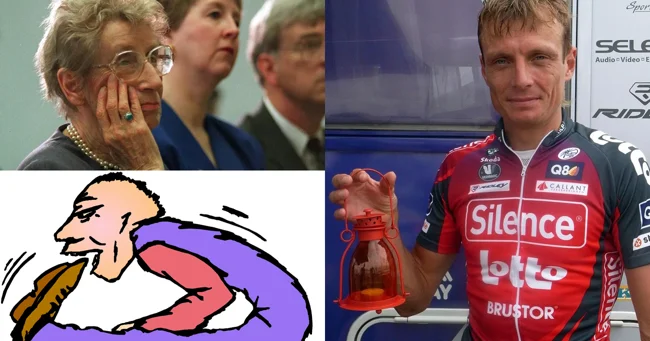
Anti-award "Stella" - for the stupidest lawsuit 
Yes, there was one like that too. How it appeared is a separate funny story.
It was 1992. An elderly woman, Stella Liebeck, sat in a parked car and sipped coffee from McDonald's. At some point, apparently, senile tremors made themselves felt, and Stella spilled coffee on her lap. 
The burn was so severe that Stella was eventually hospitalized. At the hospital, the injuries were classified as third degree, and there was even a question of life or death: burns were on 16 percent of the body.
As a result, it turned out that coffee with a temperature of 180 degrees Fahrenheit (about 82 degrees Celsius) can cause third-degree burns in less than 15 seconds (we won’t publish photos of Stella’s burns, but they are really terrible). This is the temperature at which McDonald's coffee was brewed. Home coffee machines produce a drink 30 degrees Fahrenheit less. So be careful at McDonald's. 
In the end, the woman did not tolerate such bullying and filed a lawsuit against the company. She won and received compensation of $2.86 million. And this was only two days’ earnings for the company from selling coffee. Stella herself said that she filed a lawsuit not because she wanted money (the lady was already quite old - 79 years old), but so that the company changed the supply temperature. Because it is, at a minimum, dangerous.
As a result, an entire anti-award was named after Stella, which was issued for the most ridiculous lawsuits. It was awarded in the USA from 2002 to 2007. The latest recipient was Washington judge Roy L. Person Jr.
Pearson Jr. hated that the dry cleaner had lost a pair of his favorite pants. He sued the small, family-owned business for $65.5 million. For one pair of pants! Apparently this judge is a terrible bore.
In court, Pearson literally cried over the loss of his pants, and the case even reached the Supreme Court. But the high judge was not moved by Pearson's tears, and in the end he was ordered to pay all the losses of the dry cleaner. And at the same time they kicked me out of work.
Anti-prize "Red Lantern" 
This award is given to the weakest and slowest participant in the Tour de France cycling race. The name of the award comes from the red safety lights that used to hang on the last carriage of the train.
The riders are given a paper red lantern as a reward, and this is more of a popular praise for their efforts. Because sometimes the races really involve ordinary people who just want to overcome themselves. Every year, approximately 20% of all riders drop out of the competition simply because they cannot cope with the enormous workload. Therefore, anti-premium can hardly be ridiculed.
The first and last driver to receive this award in 1903, whose name was Arsene Milhaud, is a true hero. At a minimum, because even though he reached the finish line last, he was still able to do it.
There were 60 people in the race at the time, and only 21 of them made it to the finish line at the Parc des Princes velodrome in Paris two weeks later. He was 65 hours behind the race favorite and winner, Maurice Garin, and was not included in the reports of those who had passed, simply because these same reports went into print before Milhaud passed the checkpoint.
But over time, a struggle began for the last place because of the respect of the public, and considerable contracts came from this. In 1974, two drivers, Italian Lorenzo Alaimo and Australian Don Allan, literally hid from each other to win the award. 
This award also has its own record holders. Belgian Wim Vansevenant was, as it were, an assistant to another racer, and he himself took part in the races from 2003 to 2008. By some miracle, he was able to obtain the Red Lantern by accident twice, in 2006 and 2007, but he did not particularly care: his main task was to help his leader. He himself did not like it terribly, and he called the race “sucks” if “you don’t win or you don’t have your own driver.” 
But in 2008, he specifically sought to win the prize. And he won.
Foot in the Mouth Award 
This is an award for the most ridiculous statement. It originally appeared when the founder of the Order of the British Empire, Chrissie Maher, destroyed hundreds of official documents in London in front of hundreds of people in 1979.
As a result, the founders of the award took upon themselves the responsibility of eradicating gibberish in the statements of politicians, in documents, reports and publications of official bodies. And the name comes from the English expression Put one's foot in the mouth, that is, blurt out some nonsense (with your foot in your mouth, yes, yes).
The prize is usually given to politicians and even celebrities. Among them are Silvio Berlusconi, Alicia Silverstone. In addition, the award has permanent winners. No, this is not Vitali Klitschko or Joe Biden (yet), but the well-known George W. Bush, for all the statements he made while president. 
In addition to him, the current British Prime Minister Boris Johnson also received a lifetime award. In 2019, he competed against Donald Trump and Russell Brand, but Johnson won the award for “consistent, long-term nonsense,” and had won three times before. Let's enjoy some of his statements. 
“Brexit means Brexit and we are going to make it a titanic success.”
“I couldn’t disagree with you less.”
By the way, Trump then took second place for saying that he “met the prince of whales.”
Anti-prize "Pigasus" 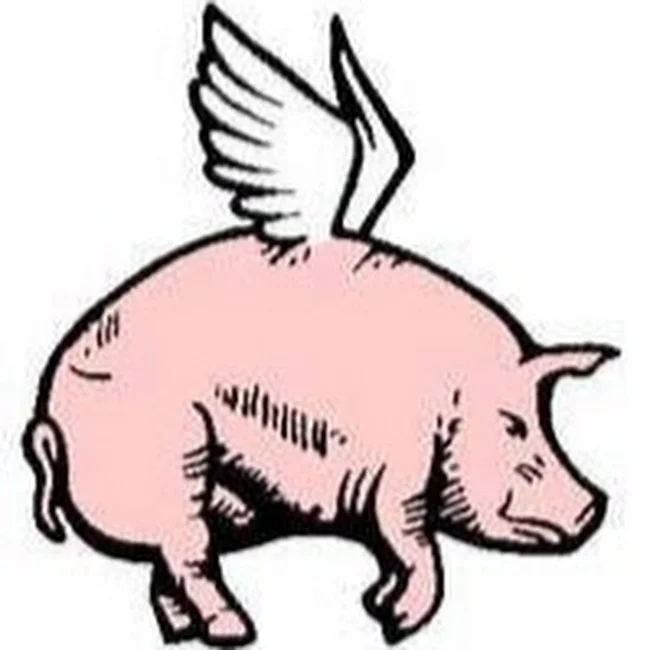
The prize is awarded annually for contributions to pseudoscience, and is aimed at exposing parapsychological fraud. It was founded by the famous illusionist and skeptic James Randi.
The funny thing about this is that the winners are announced telepathically, and the winners are allowed to predict their victories. Trophies are sent using psychokinesis. 
“We send awards; if they don’t receive it, it’s probably due to their lack of paranormal abilities,” the anti-award page says.
The award was originally named the Uri Prize in honor of the psychic Uri Geller. This same Uri used the power of his gaze to bend spoons. But Randy was able to expose the under-psychic, and as a result, the first logo of the award became a bent spoon. 
Now the award has been renamed “Pigasus” because of the phrase “When the pig flies.” This is something like our saying about the crayfish whistling on the mountain. And Pigasus is like a pun of two words: pig and Pegasus, that is, pig and Pegasus.
The award is presented on the first of April, and one year the winner was the US Department of Defense. In 1981, a study was carried out there in all seriousness on whether a Soviet rocket would burn up if (attention!) a photograph of it was burned. They spent as much as 6 million dollars on this.
Bad Sex in Fiction Award 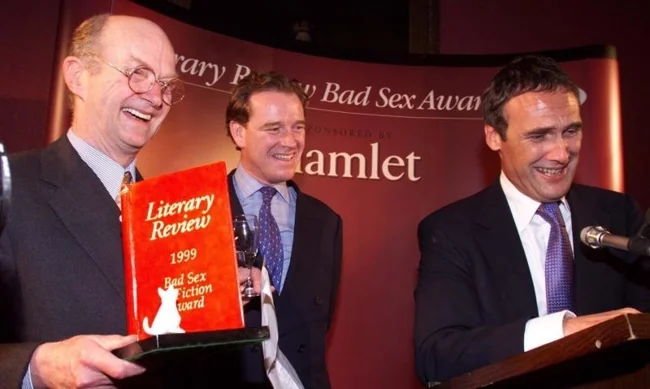
This prize is often received by holders of the Booker Prize, the Prix Goncourt (the most prestigious in France) and even Nobel laureates. And all because in their lives, apparently, there is not enough of that very thing. Yes, it is passed off as the worst depiction of sex in fiction.
The prize was established in 1993 by the editor of the Literary Review magazine, Oberon Waugh, and the critic Rhoda Koenig. It's officially billed as "the most outstanding scene of grisly sexual depiction in an otherwise good novel."
It aims to draw attention to poorly written, redundant, or downright cringeworthy passages of sexual depiction in contemporary fiction.
The work itself does not have to be written in the year of the award. Its first winner was Melvyn Bragg for his novel “A Time to Dance.” Do you know Gabriel Garcia Marquez? Yes, yes, he is also the owner. And James Frey (who accepted the award with enthusiasm) and Tom Wolfe (who actually boycotted the award) are his colleagues at the award. 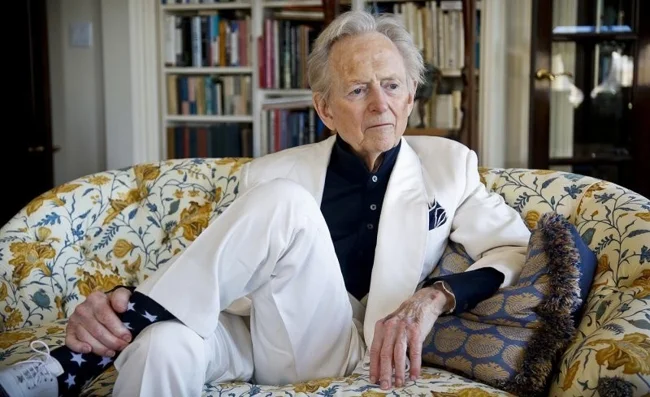
Tom Wolf
Another famous winner of this award is Haruki Murakami with his novel “Killing the Commander.” In 2019, two authors became the winners: Goncourt Prize winner Didier Decoin and Briton John Harvey.
Didier Decoin received the Prix Gaucourt in 1977 for his novel Among Gardens and Wild Pools. The action takes place in the 12th century in Japan. There is also a description of the bed scene:
“Katsuro groaned, while under his kimono, below his stomach, a lump rose up, which Miyuki, grabbing her fist, began to squeeze, knead, massage, press and rub. From such caresses, Katsuro’s testicles and penis shrank into one solid mass, shaking under her persistent hand. Miyuki felt as if she was fiddling with a small monkey whose paws were curled up.”
John Harvey, in turn, received an award for his novel Pax, in which the following scene was shown:
“She was burning, and there was heat in him. He looked at her perfect black slenderness. Her eyes were predatory. Like his own, they were ablaze with fire and desire. More than a fire, more than the tropics: the two of them raced along the equator. They embraced, as if a violent embrace could weld the two of them into one.” (Free translation)
And this was only the first time these authors received a prize. It is also interesting that the authors of the prize made a reference to the Booker Prize - in the same year, the chairman of the prize said that they were chosen after a long debate between the two laureates. 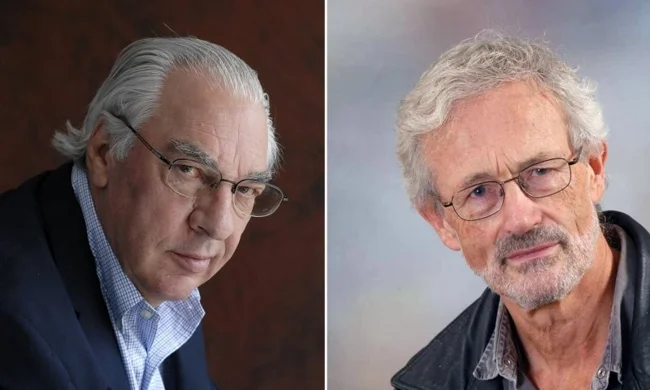
Here's how the judges announced the winners:
“Faced with two unpleasant opponents, we could not choose between them. We trust that the British public will recognize our plight."
And then they said that they were unable to make a choice even after several hours of debate.
By the way, Tom Wolfe spoke about the award this way:
"There's an old saying: 'You can bring a whore to culture, but you can't make her sing.' In this case, you can make an English literary imitator be ironic, but you cannot make him understand the point.”
Last year and the year before, however, the prize was not awarded.





